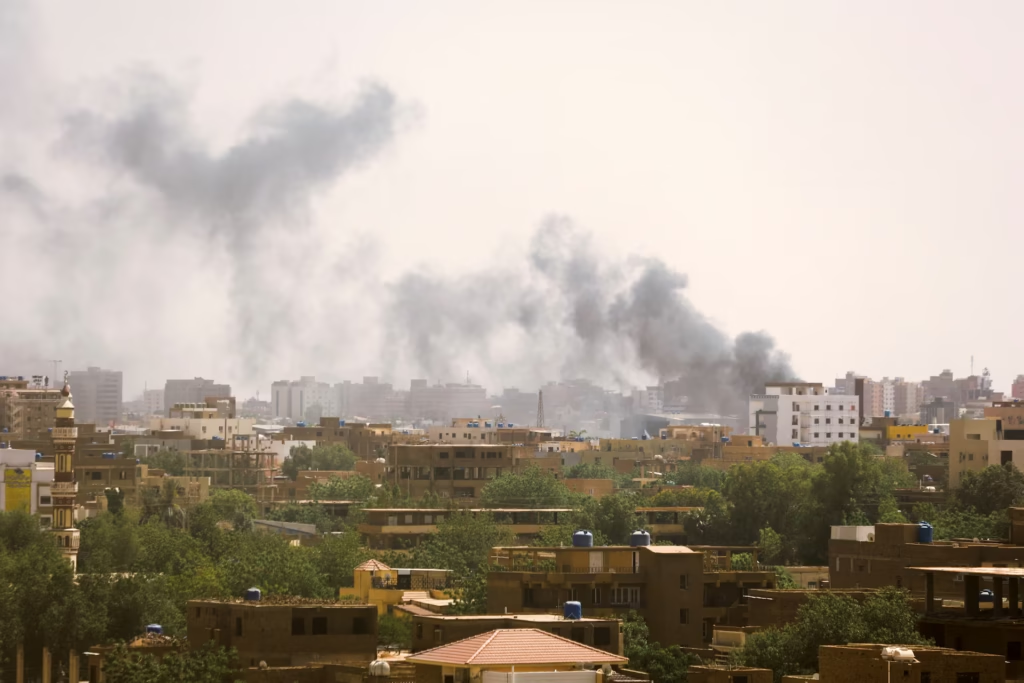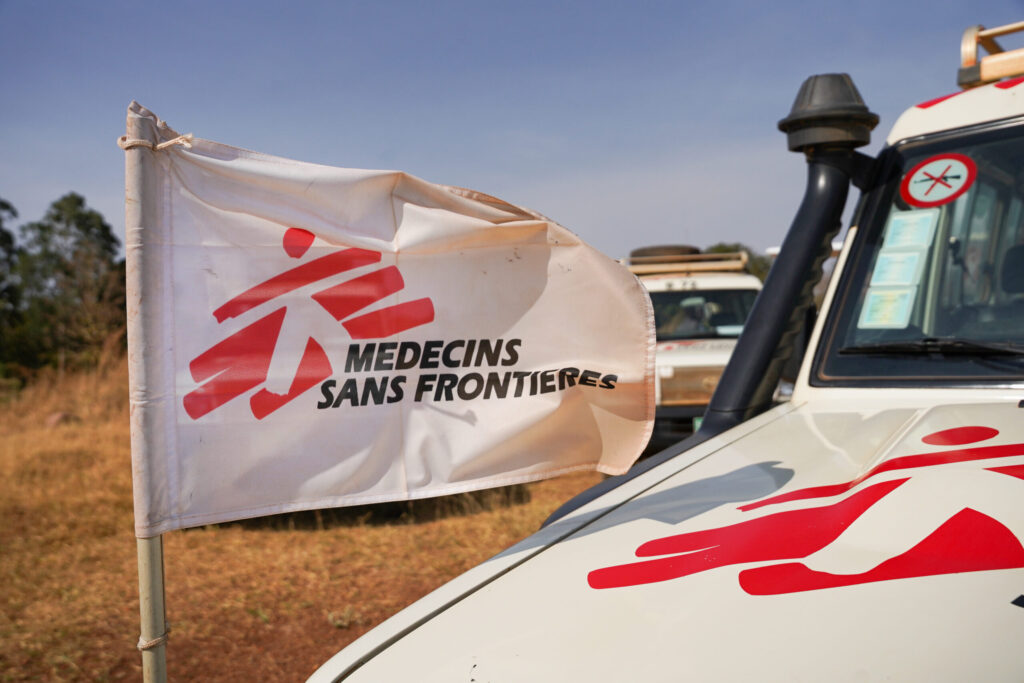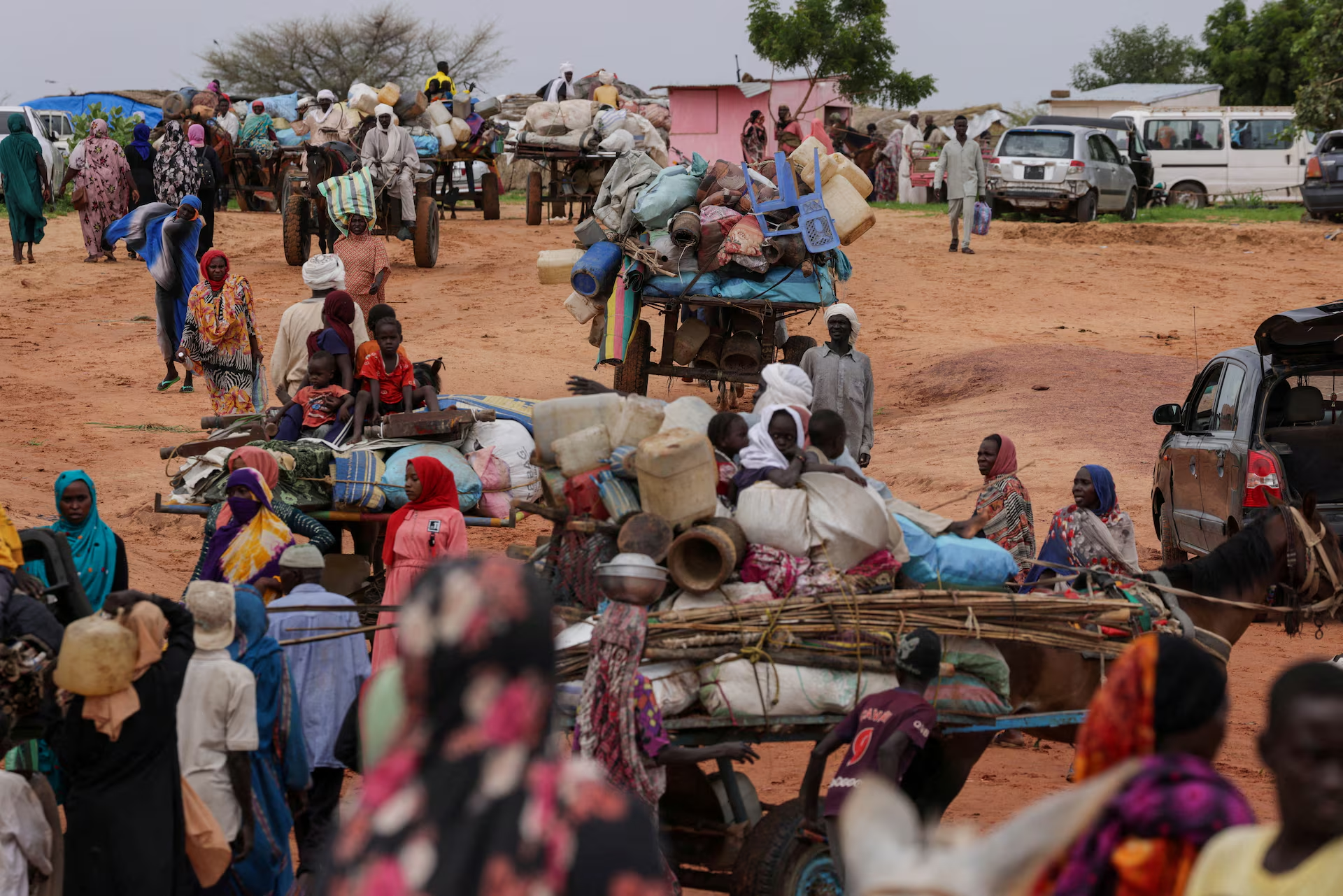
New evidence examined by Sudanese news outlet Al-Rakoba and reviewed by military experts and local witnesses indicates General al-Burhan’s army (SAF) deployed internationally banned chemical weapons during its ongoing war with the Rapid Support Forces (RSF), in incidents spanning from the capital Khartoum to conflict zones in Darfur, Kordofan, and the Gezira state.
Video footage, eyewitness accounts, and expert assessments suggest the SAF obtained chemical munitions from Iran via Syria’s former president Bashar al-Assad shortly before his fall. Ten videos analyzed by Al-Rakoba allegedly show SAF soldiers wearing full protective gear — masks, goggles, and body armor — firing suspected mustard gas shells in urban areas. One clip from May 2024 depicts a soldier holding a yellow-tipped projectile, threatening RSF snipers.
Rights groups say U.S. sanctions imposed in May 2025 against the SAF cited such evidence. SAF chief Abdel Fattah al-Burhan responded by forming a committee to investigate, a move observers saw as an implicit acknowledgment of the allegations.
High civilian toll in Darfur and Gezira
In North Darfur’s El-Kuma area, local monitors reported more than 170 miscarriages following SAF airstrikes using unidentified substances. The Sudan Peace Monitor said residents described unusual illnesses, livestock deaths, and stillbirths. In West Kordofan, RSF fighters claimed they recovered chemical protection equipment from abandoned SAF positions after battles in El-Khuwei.
Footage from RSF in El-Kuma also showed a SAF barrel bomb turning pond water yellow and releasing a foul odor, which locals linked to animal deaths and miscarriages. Camel herders in North Kordofan filmed warplanes dropping white fibrous material that allegedly caused blindness in livestock.
In June 2024, around 20 engineers at Khartoum’s Al-Jaili oil refinery fainted after an SAF air raid, RSF footage showed. Other alleged chemical incidents include attacks near Shambat Bridge, Bahri, the SAF headquarters, the presidential palace, and the city of Hilaliya in Gezira, where hundreds reportedly died after exposure to unknown agents.
Claims of Iranian supply and Islamist involvement
Military analyst Atef Nuway said repeated public threats by Burhan and his deputy Yasser al-Atta to use “deadly force” hinted at chemical deployment. He cited intelligence reports suggesting the RSF’s withdrawal from Khartoum and Gezira was due to confirmed chemical use. Nuway alleged that shipments from Iran via Assad included agents later used in the capital, Hilaliya, and other sites.
He said chemical contamination of water, air, and soil in Khartoum has caused unexplained illnesses and deformities, with authorities attributing the symptoms to cholera despite differing clinical presentations.
Mass-casualty strikes
Nuway pointed to a March 2025 SAF airstrike on Tura market in North Darfur, which killed about 400 people and left bodies charred within minutes. The Darfur IDP and Refugee Camps Coordination Committee alleged chemical warheads were used, noting the extreme heat and burn patterns.
In April 2024, residents of Mellit, North Darfur, accused the SAF of using toxic agents on livestock and water sources. Political analyst and rights activist Mohamed al-Mukhtar said testimony from El-Kuma and Mellit indicated credible use of banned weapons.
He linked the threat to the growing influence of Islamist brigades such as Al-Baraa bin Malik, Iranian-made drones, and renewed military ties with Tehran.
Long-term environmental and health impact
Ali Gadallah, a rights activist from El-Kuma, said at least 500 people were killed and over 2,000 injured in SAF airstrikes on the town, which also contaminated water and soil. “The consequences will last for years, threatening food security and pastoral livelihoods,” he said.
Sudanese journalist Mohamed Saleh al-Bashir claimed chemical weapons were first deployed during the SAF’s bid to retake Omdurman Radio, and later in battles in Jabal Moya, Al-Jaili refinery, the presidential palace, and Malha in North Darfur. He reported unusual skin diseases in suspected strike zones, particularly Omdurman, with hundreds of deaths linked to environmental contamination.
The SAF has not publicly addressed the latest allegations beyond Burhan’s announcement of an internal probe. The RSF has repeatedly accused the SAF of war crimes, while the army has denied systematic use of banned weapons. Independent verification remains limited due to restricted access to affected areas.




